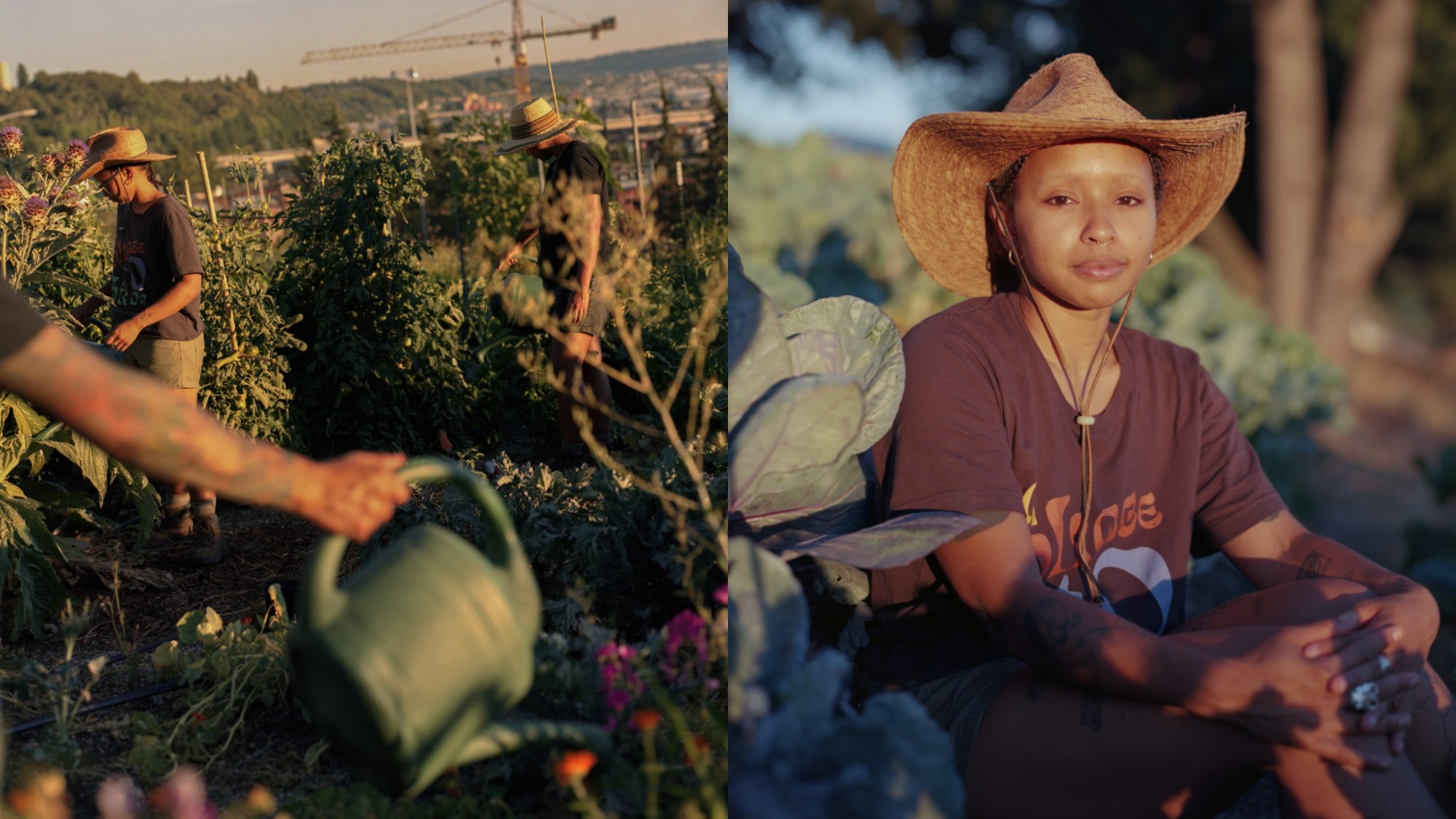This story originally appeared in United States of i-D, a series in celebration of diverse communities, scenes and subcultures across America.
On a recent Saturday morning on Seattle’s Yesler Terrace, volunteer hours at Yes Farm started off slow. Birds chirped over the loud sounds of cars barreling down I-5 just dozens of feet away as the morning light washed the urban farm in gold. As folks started to trickle in, one of the first to show up was Brandon, a young Black man from south Florida. After brief introductions, Yes Farm manager Hannah Wilson assigned him a task: “I’m going to have you dig.”
They led him past the Chinese and African herb gardens over to a sunny patch overrun with invasive blackberry bushes at the north end of the farm. There, Hannah relayed the plan: root out the thorny brush and replace it with green aloe-like flowers. The new recruit slipped on his gloves and got to work.
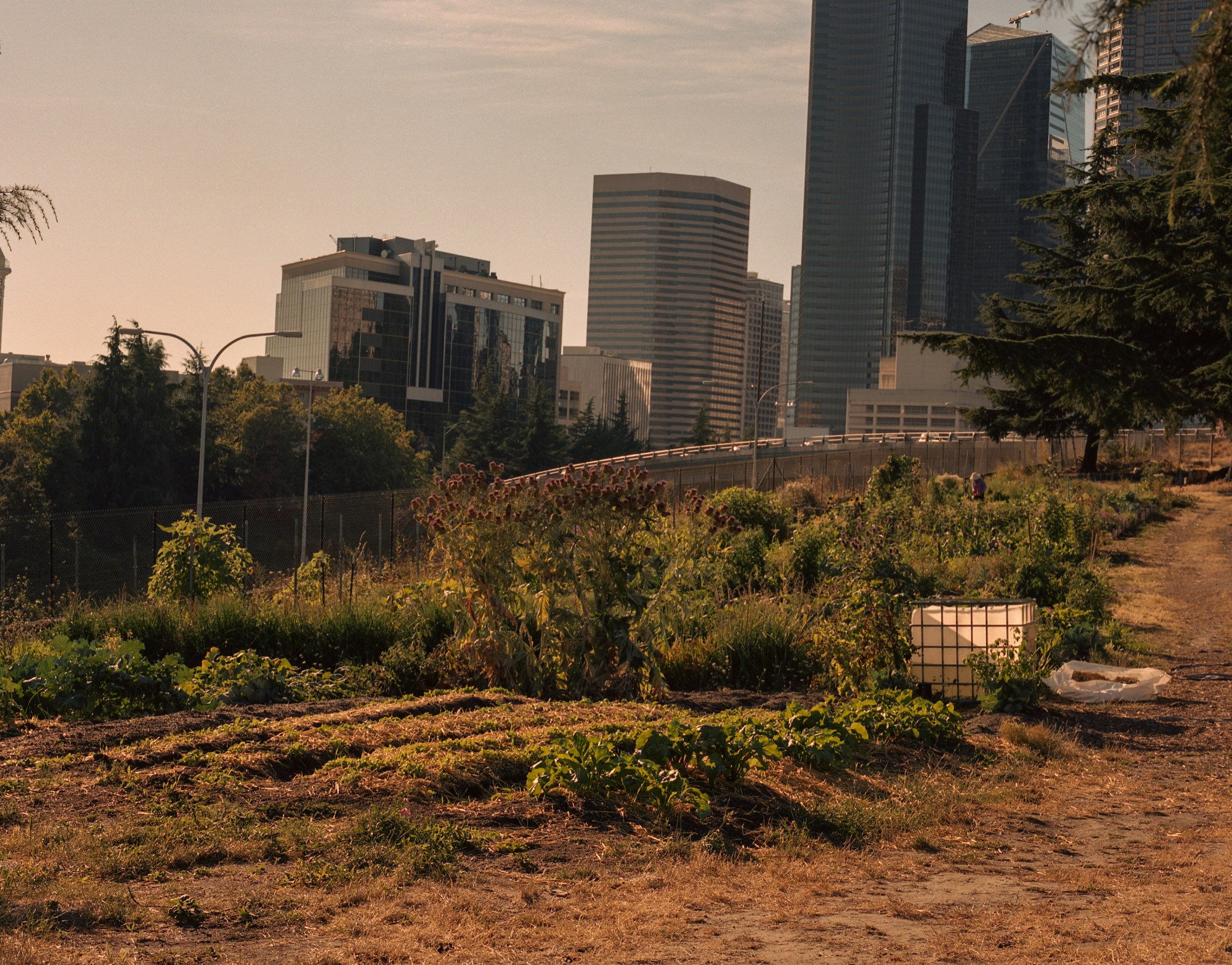
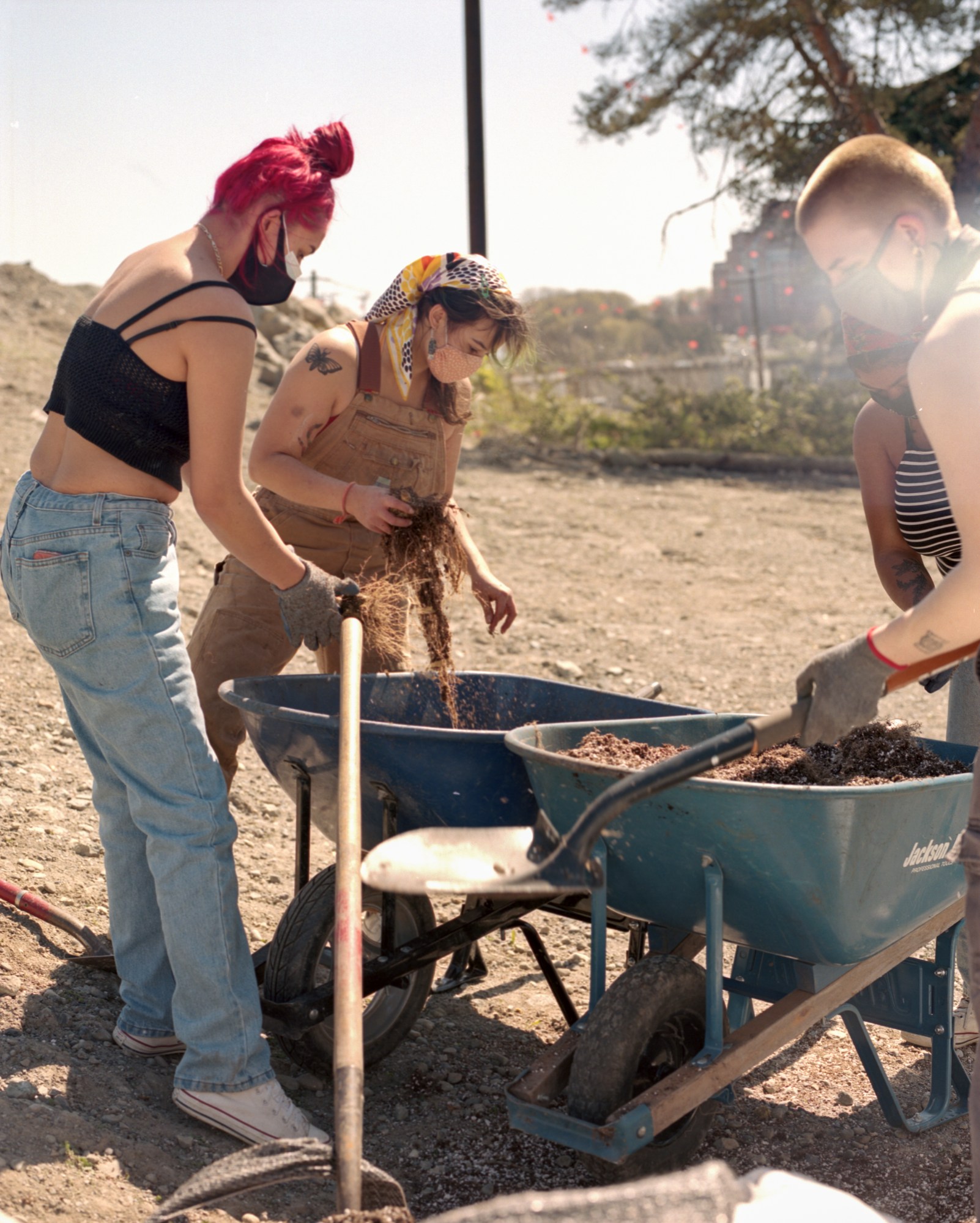
Yes Farm is a one and a half acre Black-led urban farm near the heart of downtown Seattle, established to nourish Black and Brown folks on an educational, nutritional and spiritual level. The project was born five years ago, when the Black Farmers Collective — the farm’s parent organization — along with the Seattle Housing Authority won a bid to lease the strip of land abutting I-5 from the Washington Department of Transportation for free. It took a couple of years for the owners to sort out the paperwork, but the farm hit the ground running in 2018. Replete with dozens of gardens, a beehive, a greenhouse and a covered shed, Yes Farm is now a green gem amongst the gray concrete of the city.
The day-to-day operations are run by Hannah, a queer, deaf and Black 24-year-old, who has worked on the farm for more than two years. Originally from California, Hannah came to Seattle for school and started working on the farm in 2019 as an intern, eventually working their way up to farm manager the next year. As the pandemic hit in March 2020 and Black Lives Matter protests followed that summer, they have felt further grounded in the farm’s mission to create a safe space for Black folks to commune with the land.
“As Black people, we understand that every day is stressful and we’re dealing with intergenerational trauma,” Hannah says over the phone. “Just being able to be outside or eat well does wonders for your connection to spirit, your body and your community.”
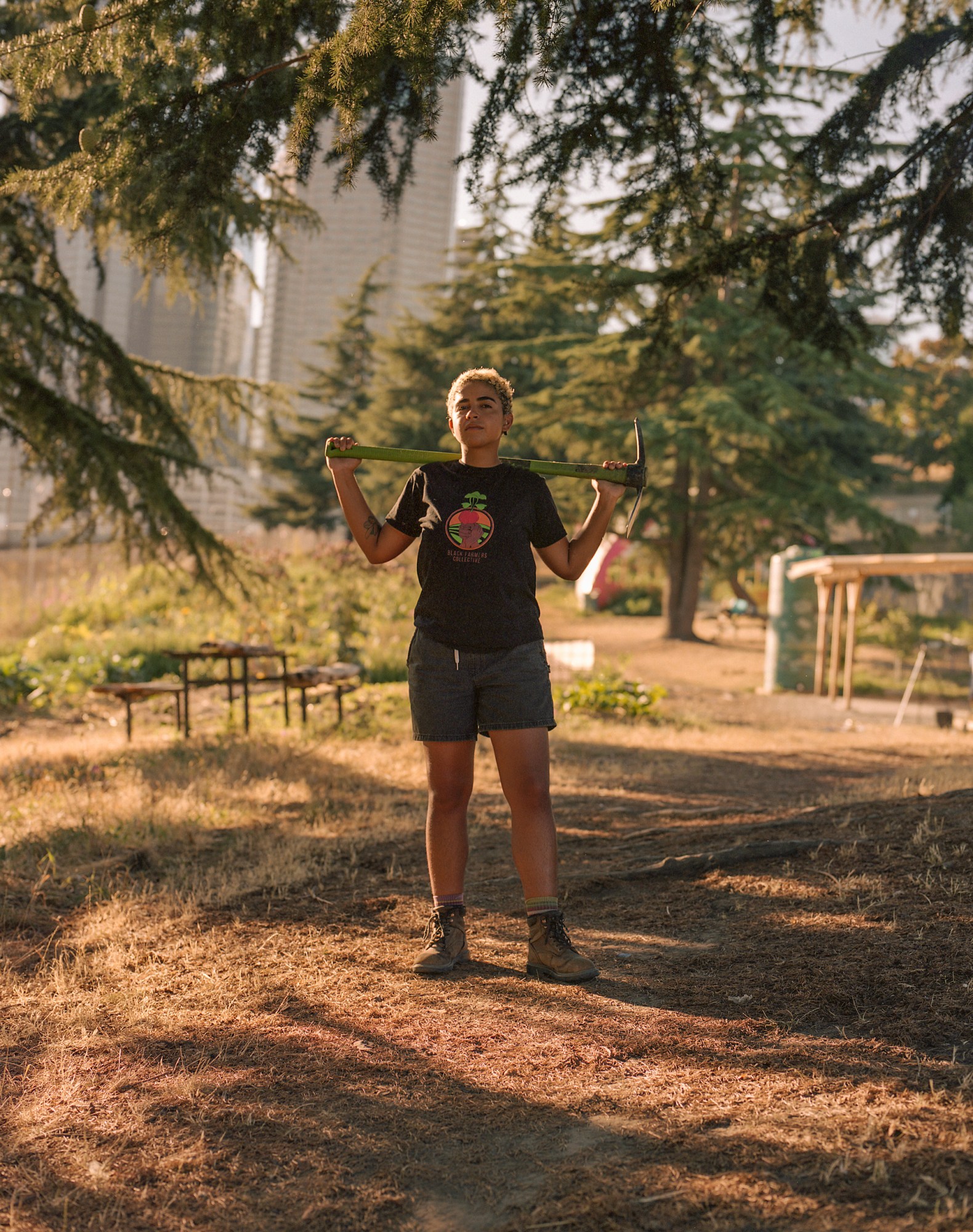
In their time at Yes Farm, Hannah has focused on trying to grow foods that are native to the region, but also have a place within the Black community. Soul food staples like collard greens, cabbage, sweet potatoes and peppers grow alongside more typical garden fare like tomatoes, onions, squash, kale and zucchini.
The farm gives most of their harvest to BIPOC-led and owned organizations and mutual aid groups to distribute to Black and Brown communities in the area. The goal is to make high-quality produce more accessible to low-income people of color. Even though this is a core part of Yes Farm’s mission, it often gets misinterpreted. Hannah says they learned quickly that white folks love to ask if Yes Farm sells their food and, if so, ‘Can they buy it?’ “That’s not who I’m trying to feed,” they explain.
In addition to growing food for local communities, Yes Farm also functions as an outdoor learning and gathering space. Throughout the year, they host programming for youth of color to learn how the farm works and give them space to explore a different environment.
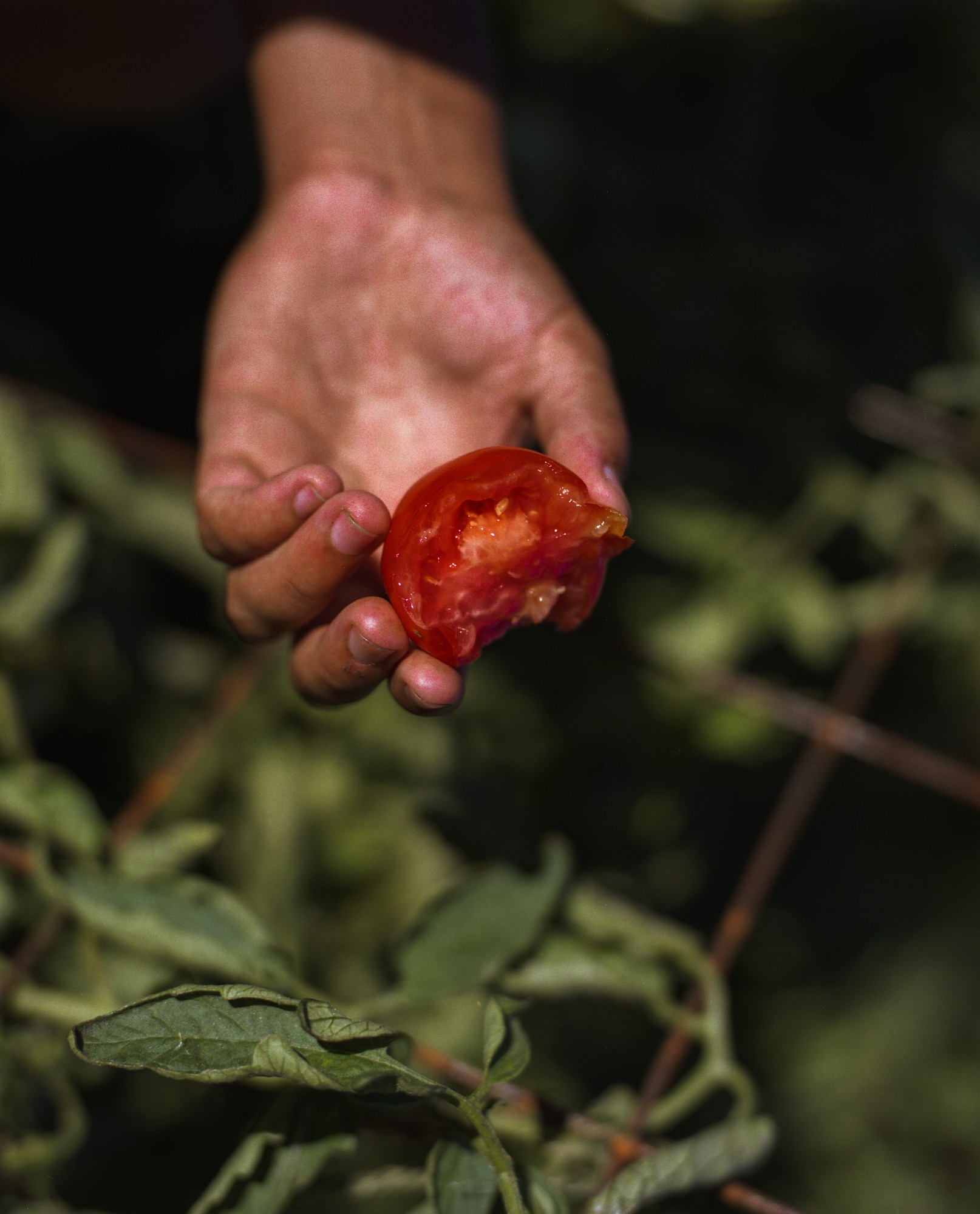
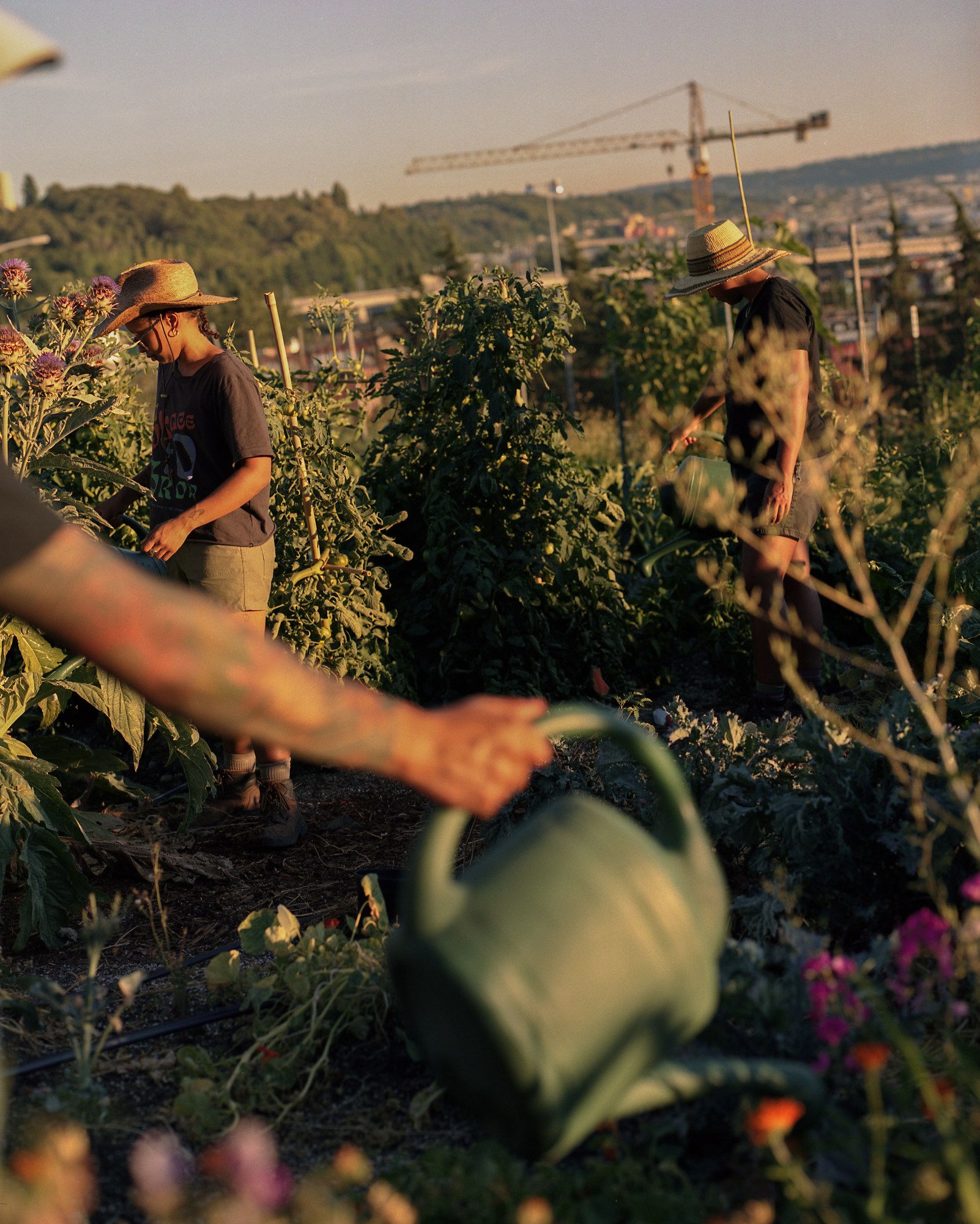
They also help maintain an herb garden for Bastyr University, a naturopathic school in Kenmore, WA. And aware of their location near Seattle’s oldest public housing project — the first racially-integrated public housing project in the country — Yes Farm has raised beds for area residents without access to gardens, mostly attended to by African and Asian elders in the community.
Underlying every facet of the farm is the ideology of food sovereignty: providing access to sustainable food systems by Black people for Black people, shifting power away from the white supremacist methods of food production and distribution back to the most vulnerable. Even though their enslaved ancestors built the agricultural foundations of this country, Black farmers have historically been discriminated against by the US government via land theft and left out of federal land giveaways. Yes Farm is a small but crucial step in reclaiming that heritage.
Ray Williams, managing director of Black Farmers Collective, helped found Yes Farm as a way to improve the health of the Black community and other communities of color, refashioning what urban farming looks like. “We’re also trying to change the culture of urban farming. A lot of people don’t look at that as something that people of color do. Whereas actually, you know, we’ve been farming in our backyards for quite a long time,” Ray says. “It was important for us to create a public open space that was welcoming to all, but was designed to be safe and to provide leadership opportunities for Black and BIPOC folks.”
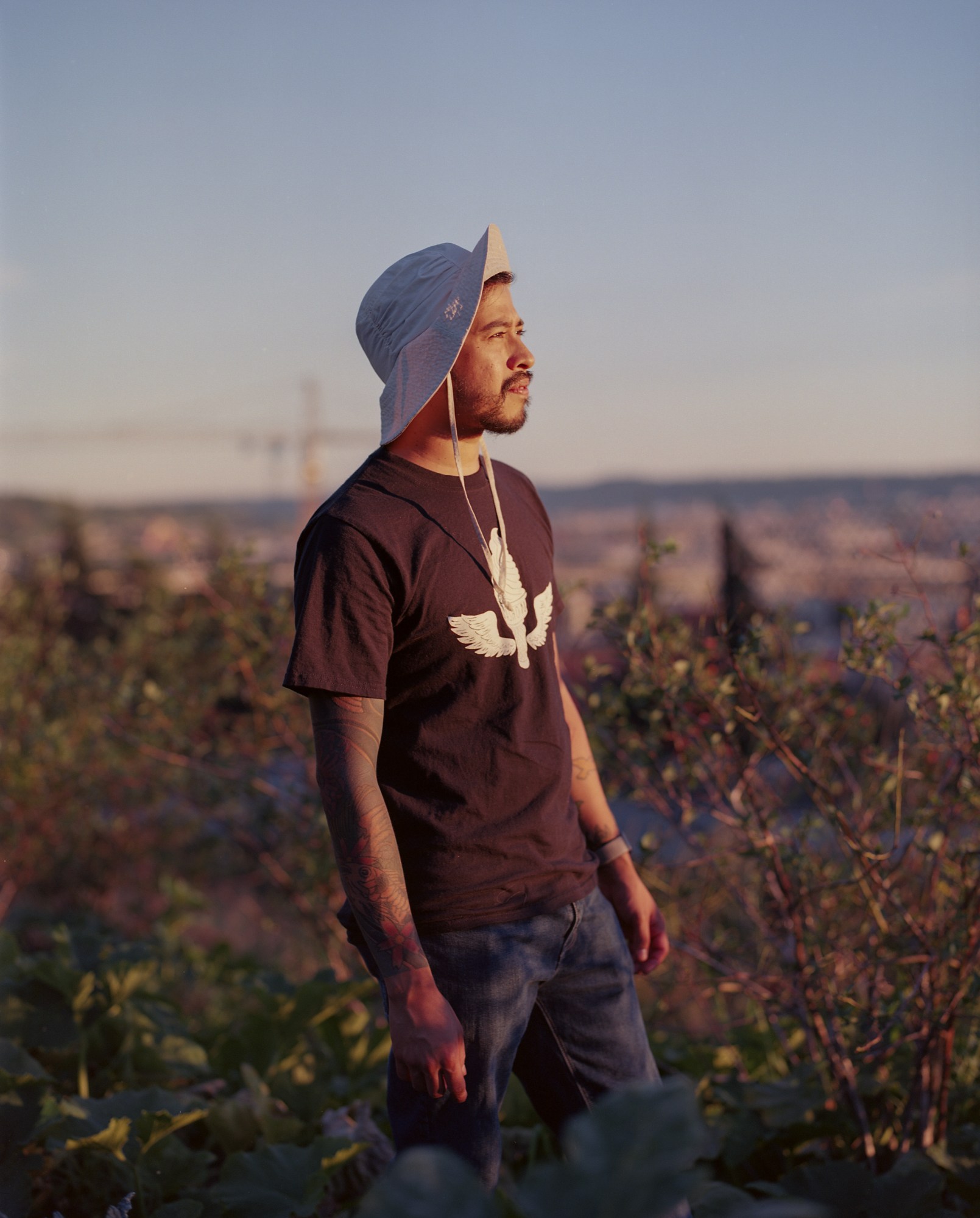
Similarly, Hannah sees plenty of opportunities for people to participate in the farm’s mission. Being brawny and good with a backhoe won’t put one person ahead of another — there’s a space for all skill sets at Yes Farm. Simone Dawson, the farm’s resident artist, got involved after befriending Hannah on a dating app just before the pandemic hit. The farm provided a much-needed respite from the pervasive isolation of the early parts of quarantine.
Quickly, Hannah encouraged Simone to draw from their artistic practice to contribute to the farm. Simone started off making signs and is currently in the process of painting a couple of murals on the greenhouse that will depict germination cycles, Indigenous plants, root systems and other species you can find on the plot of land. The whole project is a reminder that “beautiful things take time,” Simone says. Working so close to the land helped them rethink their relationship with productivity, teaching them to slow down.
“Being at Yes Farm, even if I’m not doing anything, I feel like I’m being productive because I’m in a place that makes me feel whole and in a place that makes me feel — for lack of a better word — safe,” Simone says.
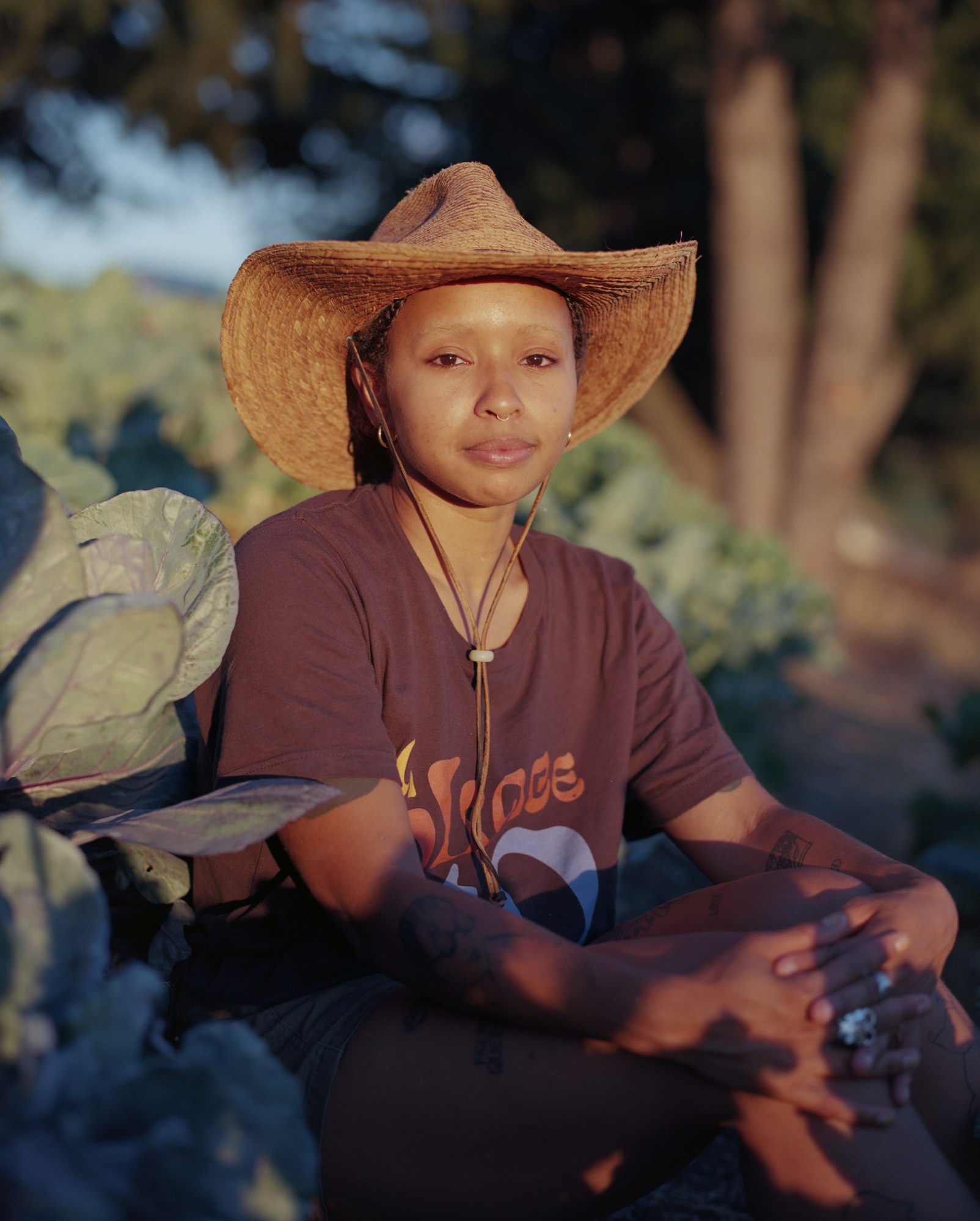

The mostly volunteer-run farm explicitly uplifts Black and Brown people, but folks of any background are welcome to offer their labor. Early that Saturday morning, a Black woman and her young son harvested leafy kale, playfully discussing whether the greens would taste yummy in mac and cheese. A white couple grabbed shovels to assist in ridding the corner of blackberry shrubs. Hannah patiently directed the volunteers where they needed to go with a warm smile, offering bits of advice and pointing out how the bees love artichoke flowers along the way.
For Yeawa Asabi, who has volunteered with Yes Farm for over a year and a half, being able to access a Black-led project in the middle of one of the whitest major cities in the country felt like a huge relief. Hailing from Oakland, Yeawa said the farm helped expose them to different modes of being Black, especially in relation to the Earth. Now, they are incorporating the groundedness and healing they’ve found on the farm into a thesis for school.
“The basic premise of what I’m working on is talking about the liberation of wellness within the Black community — how do we cultivate that for ourselves?,” Yeawa asks. “[Yes Farm is] where I carried out my research, you know, interviewing individuals. And one of the biggest things I learned is that — I don’t feel like this is new — but it’s like Black people need spaces where they can rest or do whatever they really need to do.”
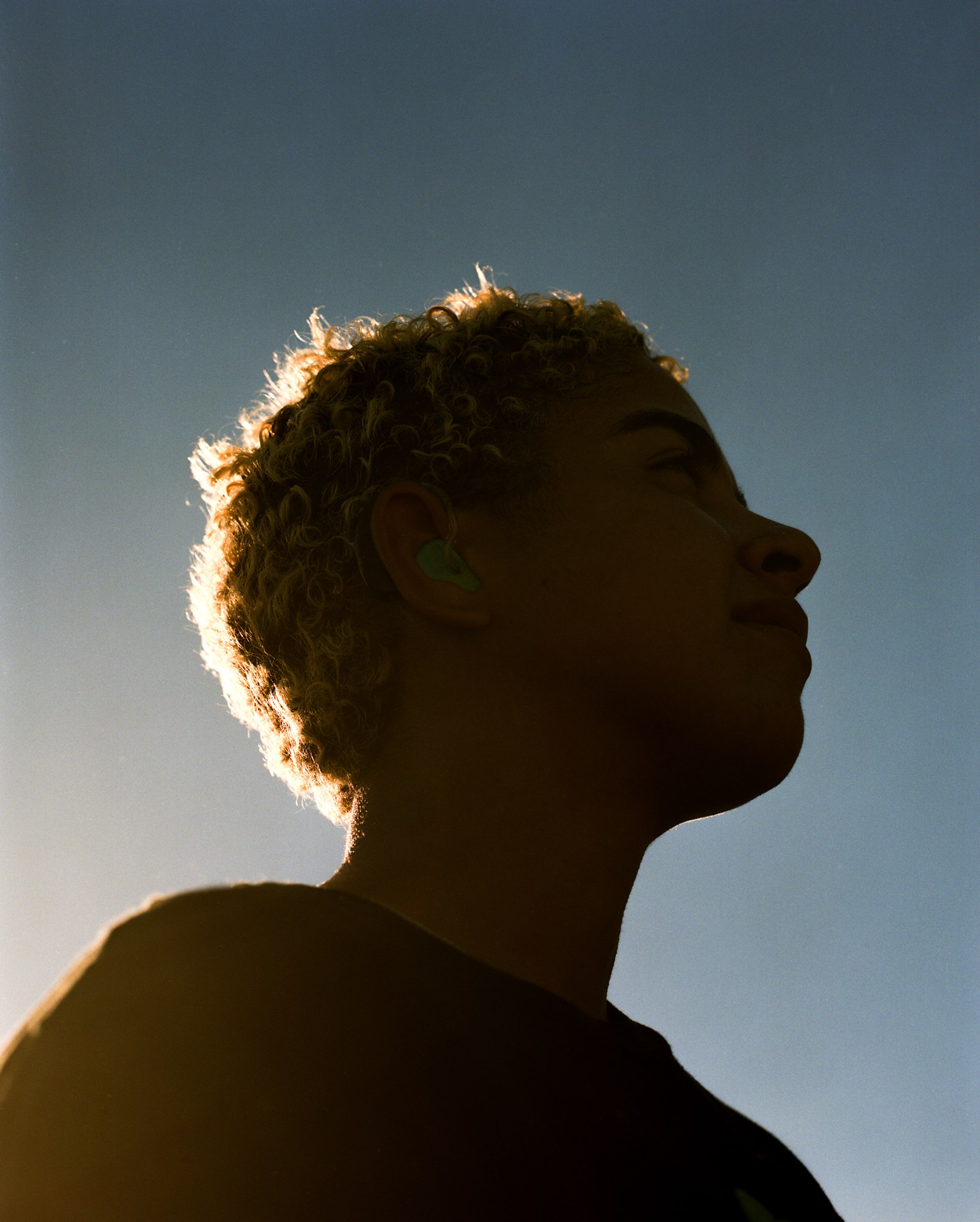
That connection between Black liberation, wellness and farming became even more clear during protests in the summer of 2020. Seattle saw daily marches starting in late May, culminating in several violent police responses to demonstrators in the city. One of the most salient elements to come out of that moment was a protest garden planted by Marcus Henderson in the Capitol Hill Occupied Protest (CHOP) zone, a briefly autonomous and police-free space established after Seattle police officers abandoned the East Precinct in early June 2020.
Marcus explicitly connected the struggle against police brutality to the need for Black people to have a space to nourish themselves, encouraging Black and Brown people with no previous gardening experience to pitch in. CHOP fell only a month later and Marcus went on to establish Black Star Farmers, an organization that reclaims Black and Indigenous relationships with the land by growing produce to redistribute to those communities. His protest garden remains one of the only permanent fixtures left from the formerly autonomous space. With the city’s renewed attention on Black urban farming that summer, came a wave of interest in the goings on at Yes Farm.
Hannah said the attention that the farm received was overwhelming. At the time, the relatively new Yes Farm didn’t have the infrastructure to deal with the donations, volunteer requests and interest they received. Though Hannah said that they were able to connect with a lot more Black and Brown activists as a result, the interest from white folks dried up over time. The donations, however, allowed them to buy a tractor last year.
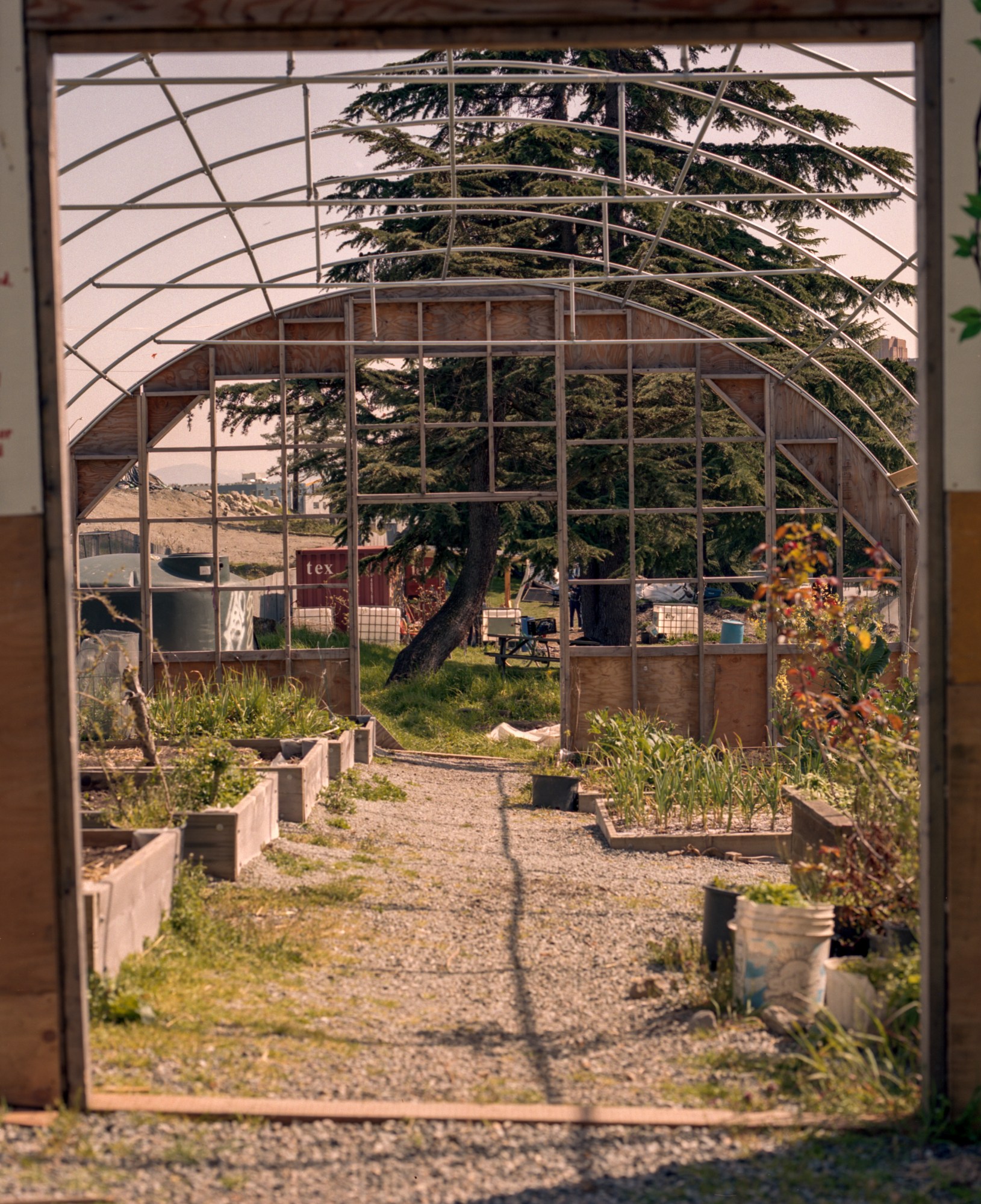
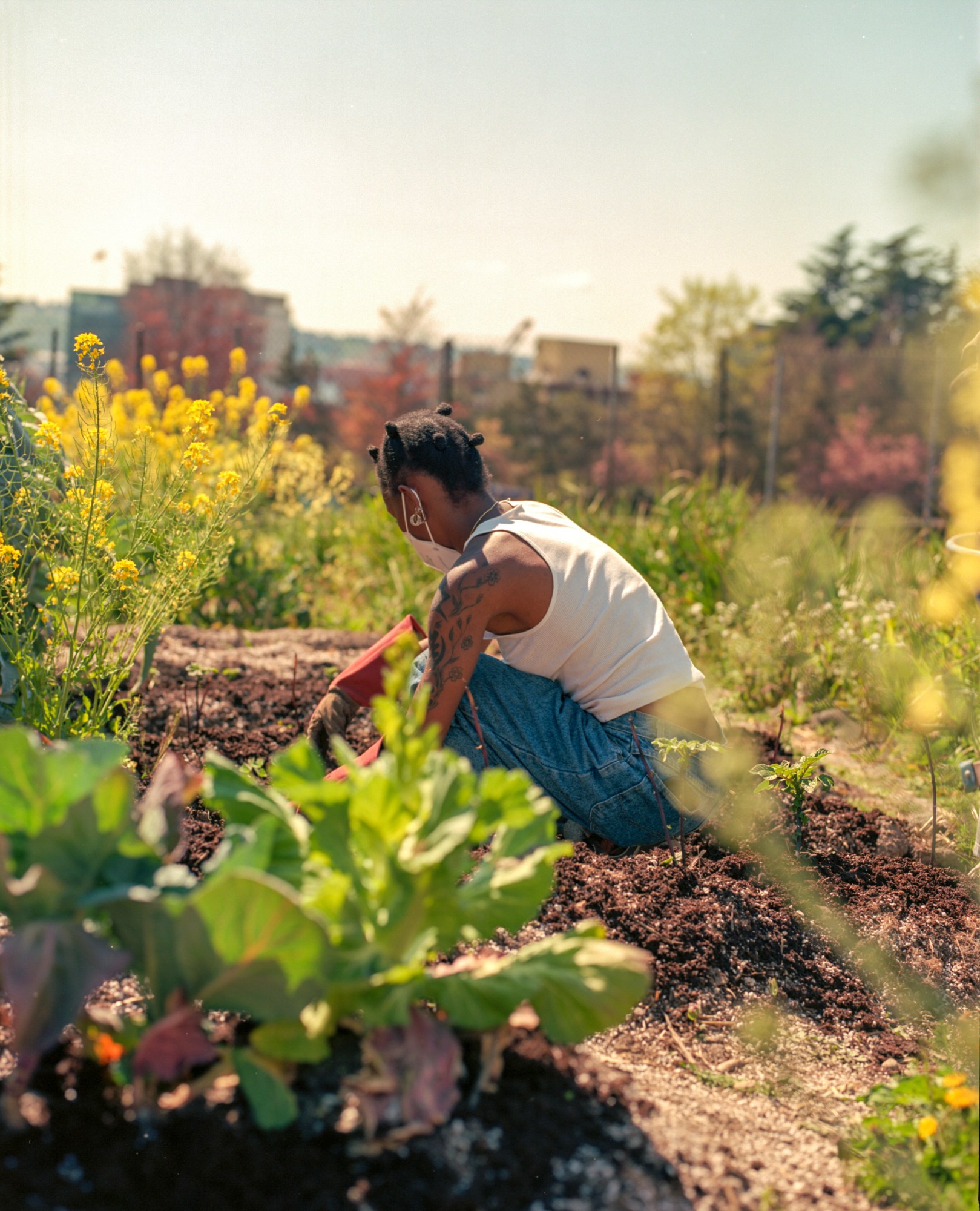
Before the pandemic, Ray wanted to develop Yes Farm into a space where workers on the farm would grow food that they would then sell and split the profits. But coronavirus drastically changed those plans, upending economic systems across the globe and greatly increasing the need for fresh fruits and vegetables, especially in low-income communities. The farm rapidly expanded to produce as much food as possible for those that desperately needed it.
As Black stewards of the land, Yes Farm is learning to work closely with the Indigenous communities in the area. In addition to the partnerships they’ve created with Black-led organizations, the farm also works with the Chief Seattle Club and Seattle Indian Health Board, inviting elders out to the farm to enjoy coffee and get their hands dirty. They’ve started to plant a food forest in the back half of the farm that has a lot of native plants and foods, and are looking to start growing plants for Indigenous medicinal practices.
Still, Yes Farm has plans to expand further. As they sign their next five-year contract, there’s a lot that Hannah and Ray want to accomplish — making the north end of the farm more ADA accessible; connecting the south end with the neighboring Chinatown-International District; bringing more youth, healers and cooks out onto the farm; and continuing to provide a space for Black and Brown people in Seattle to heal and connect with nature. It’s not just about centering Yes Farm’s future around their own hopes and dreams, but opening it up to others who want to get involved.
“One of the things I’ve been thinking about recently is how we’ve built so much within the time that I’ve been at Yes Farm,” Hannah reflects. “And how I can bring more Black folks on board to learn from all the work that we’re doing, and then, eventually, pass the torch to someone else so that they can also implement their vision through the farm.”
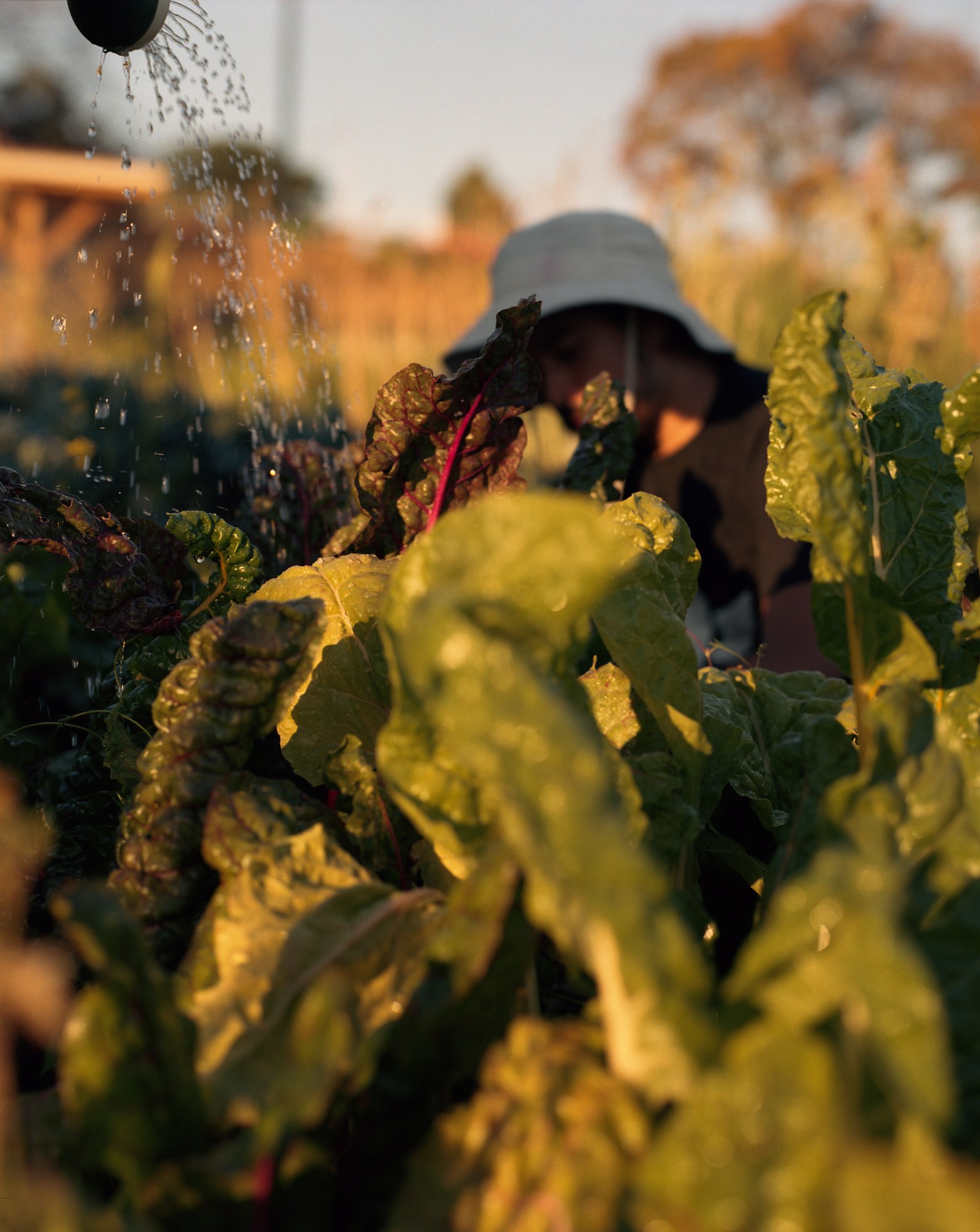
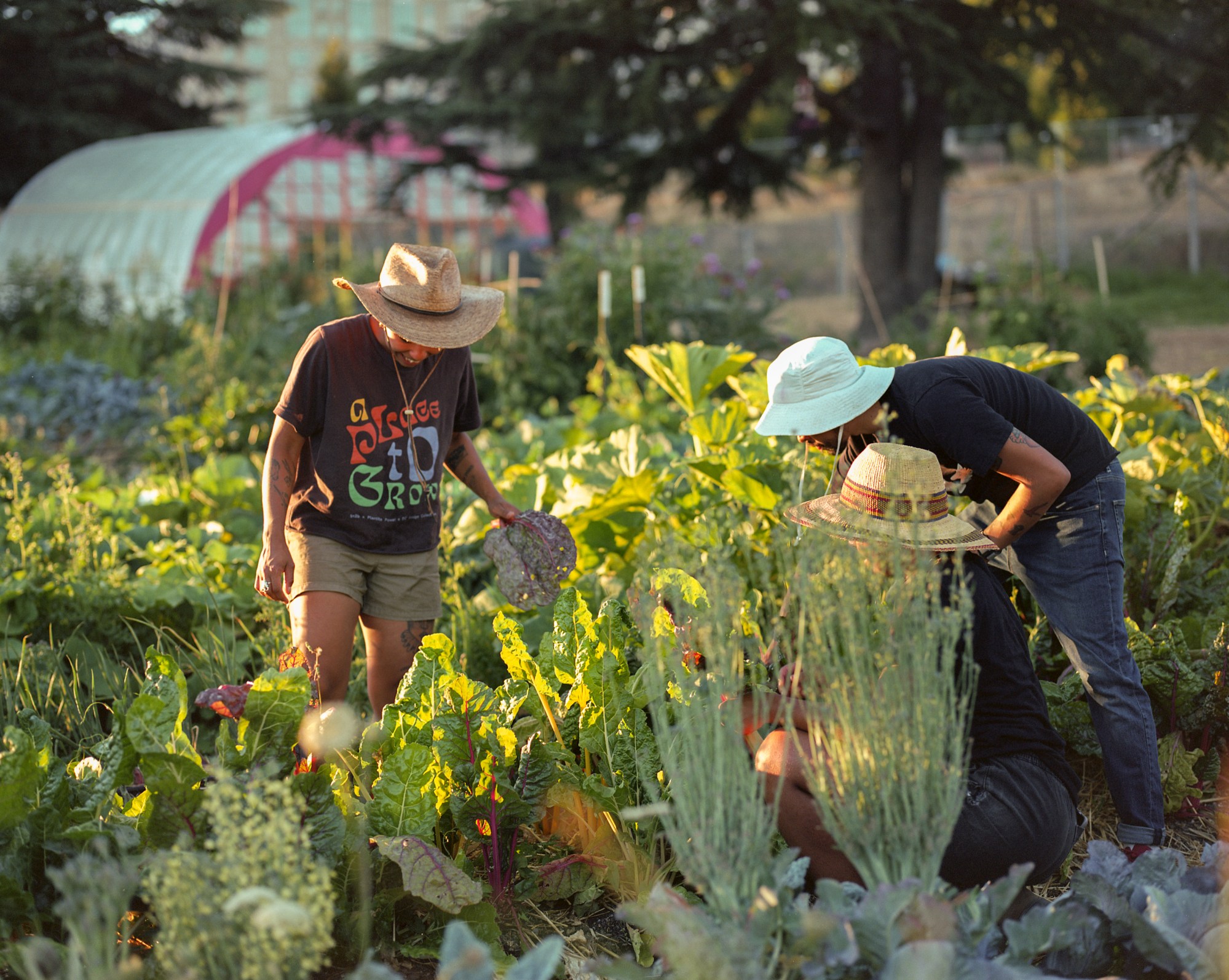
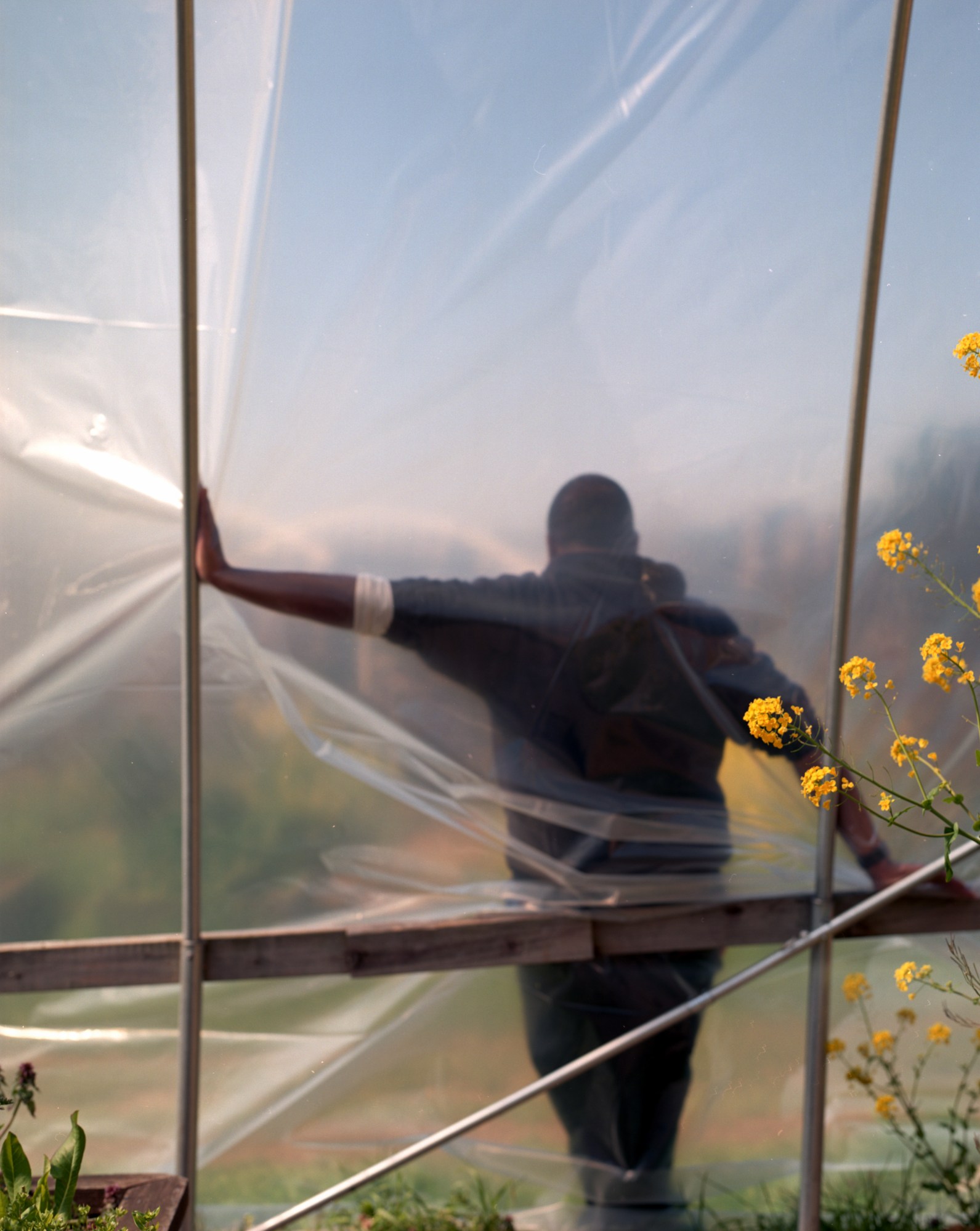
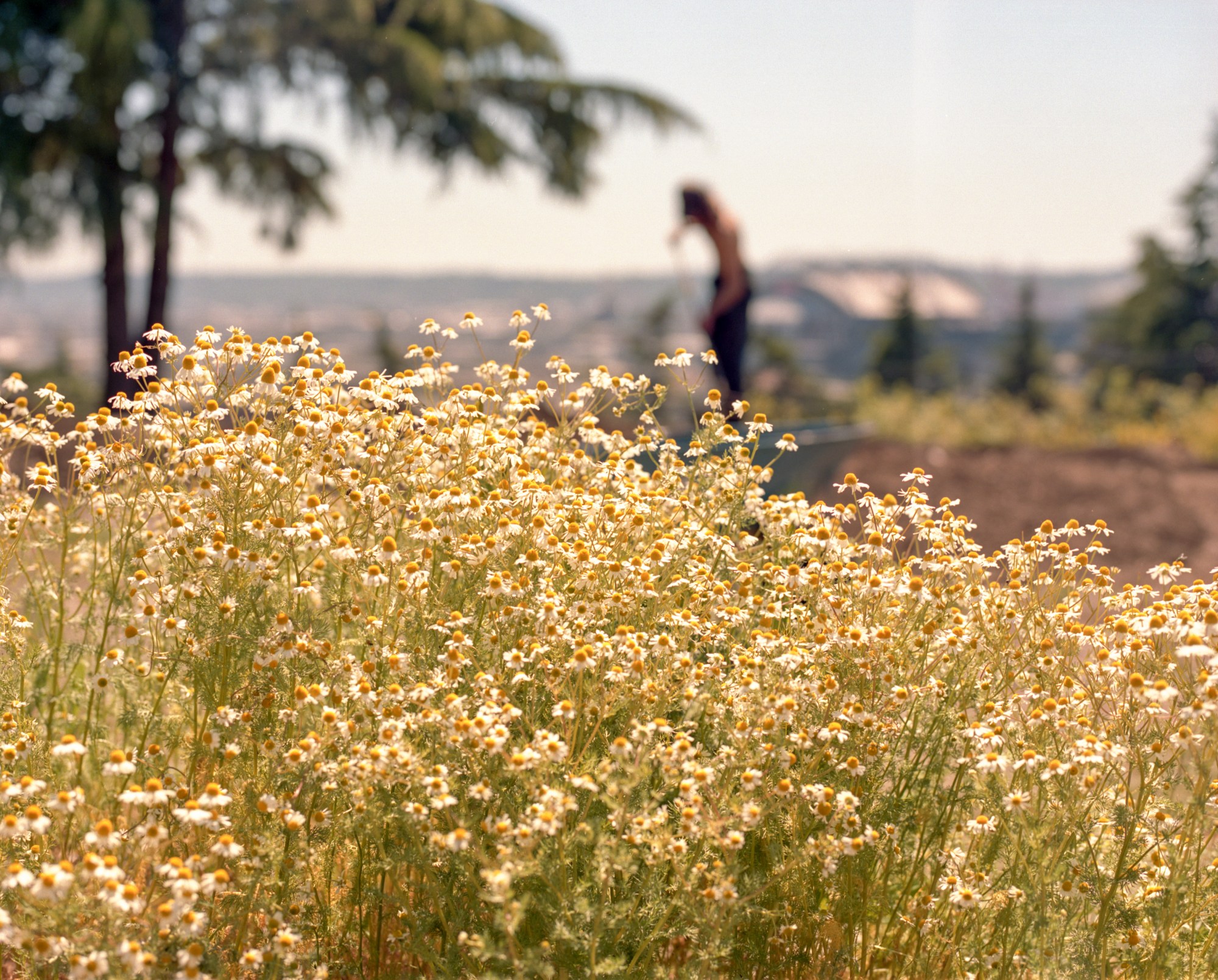
Follow i-D on Instagram and TikTok for more culture. Tune into United States of i-D here.
Credits
Photography Raphael Gaultier
